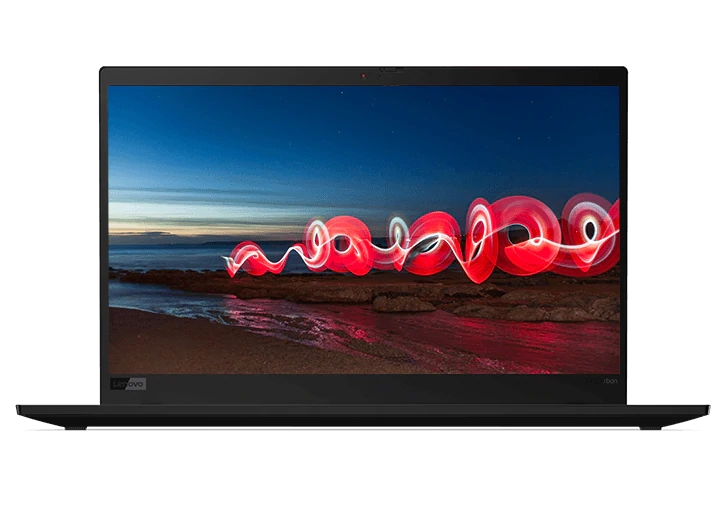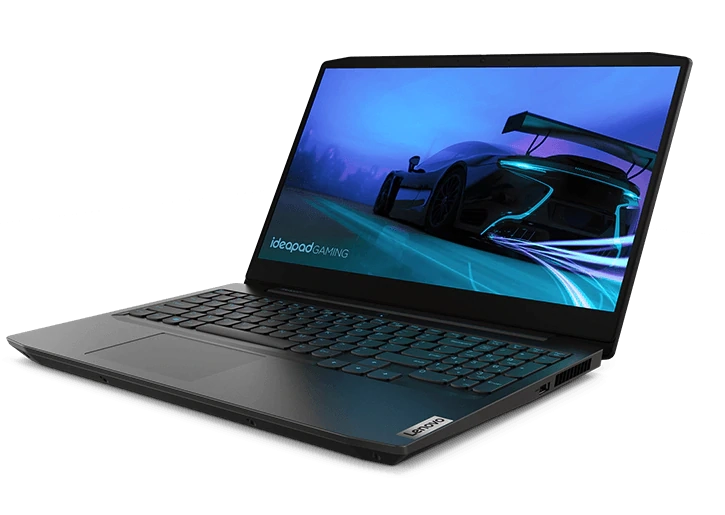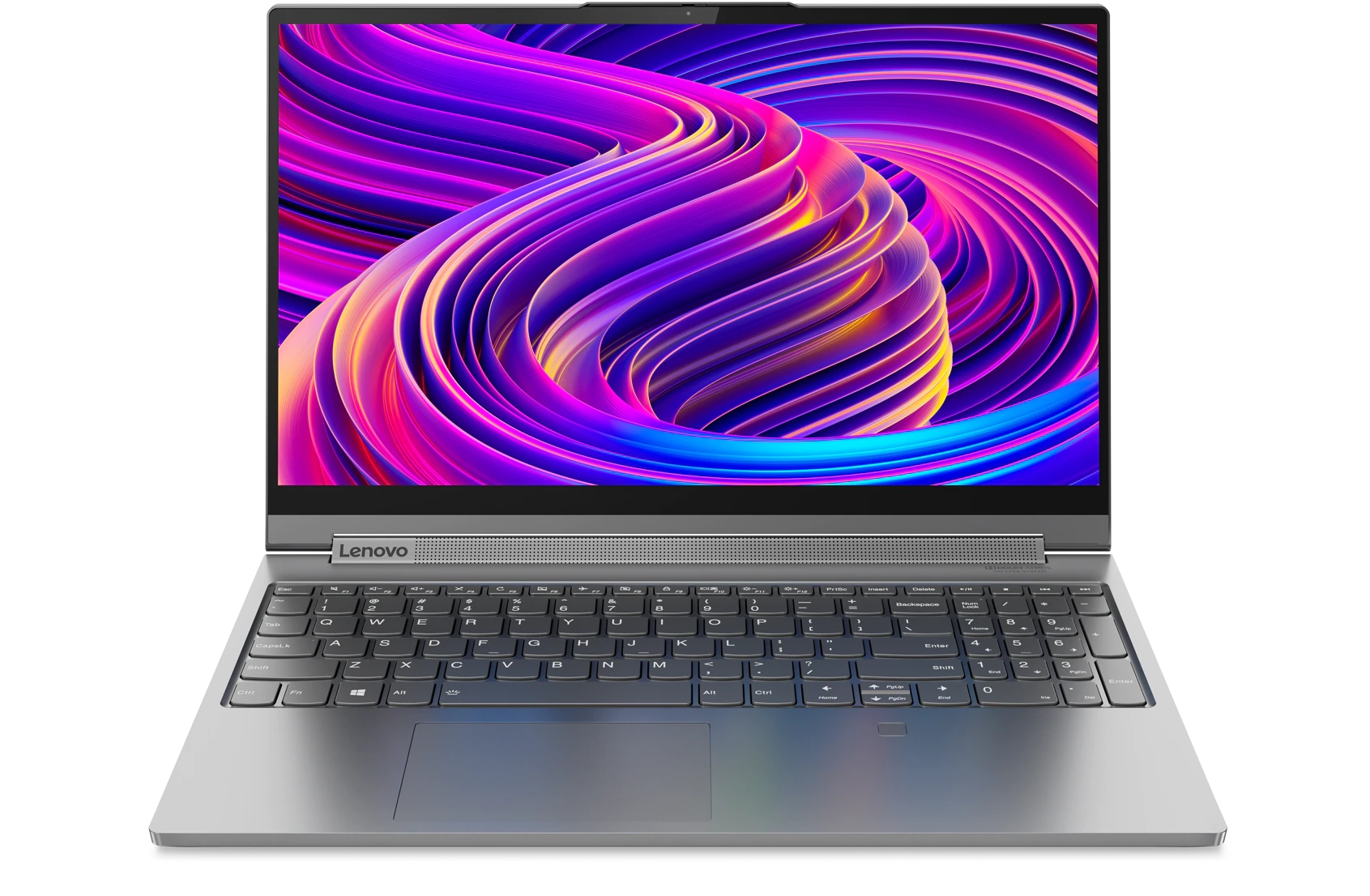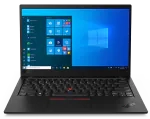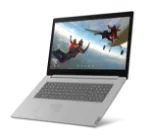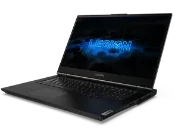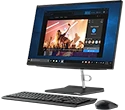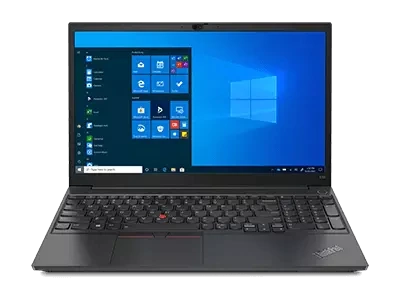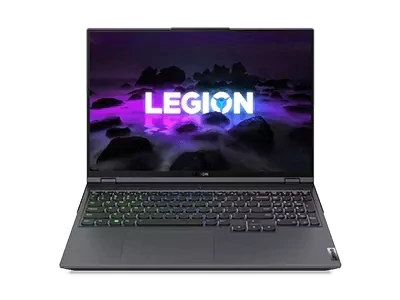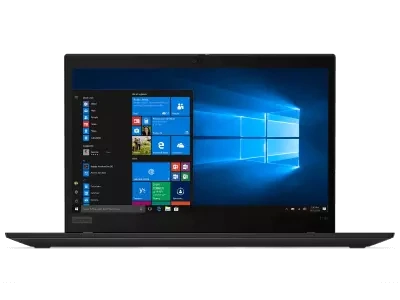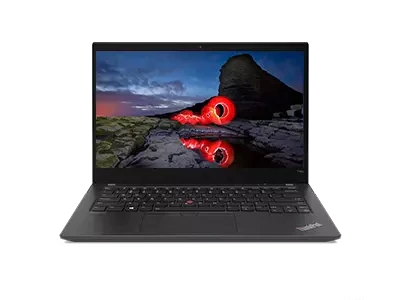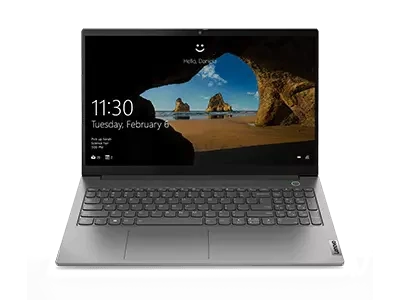Choosing a Gaming Laptop or Desktop
There's nothing like a cutting-edge gaming machine. Whether you're a hardcore gamer or an amateur enthusiast, you can take your favorite hobby to the next level with a new PC. The tricky part is deciding whether to invest in a gaming laptop or desktop. In the past, that was a fairly easy question to answer, since gaming laptops couldn't come close to the performance and customizability of a desktop. However, gaming laptops have continued to evolve in the past few years, packing incredible features into a portable package. In this FAQ, we've outlined the pros and cons of a gaming laptop vs. desktop, so that you can make an educated purchase and enjoy the best that gaming has to offer.
Advantages of a Gaming Desktop
In many ways, pitting a gaming desktop against a gaming laptop can feel like an unfair fight – almost like a heavyweight boxer going up against a lightweight. Gaming desktops are much larger machines than their laptop counterparts, and their expansive designs can pack a lot more features inside. Here are some of the top reasons to choose a gaming desktop:
Performance
Most laptops are designed with mobile-specific processors, which are usually less powerful than their desktop equivalents, because they have to fit into a smaller frame. On the other hand, gaming laptops have significantly more space to work with, so they can pack more processing power inside. That's also true for the cooling system, which has to be cleverly engineered in a laptop, but can be more effective in a desktop design. Heavy-duty gaming will tax your system and cause it to heat up, but a gaming desktop can put more cooling fans and pads in place to keep your PC running smoothly.
Customization
Gaming desktops tend to be way more customizable than laptops, because there's only so much tweaking and expanding you can do with a portable machine. With a desktop, if you want to add a second hard drive or an updated graphics card, it's as easy as unscrewing the case and replacing the part with some simple tools. Gaming laptops may have the option to replace a hard drive or battery, but it's a much trickier process, and you'll have to find the perfect replacement part for your machine.
Advantages of a Gaming Laptop
Gaming laptops can go with you anywhere, which is a pretty big selling point if you like gaming on-the-go. But there are quite a few reasons to choose a gaming laptop over a desktop – especially if you're a college student or a digital nomad. Here are some of the top advantages of a gaming laptop:
Portability
Laptops are thin and lightweight enough to bring to a coffee shop, your friend's house, or your couch. On the other hand, a gaming desktop is pretty much bound to your desk, unless you decide to pack it up and lug it to another location. Gaming laptops are all about freedom and mobility. Everything you need is packed into one device – including the display, keyboard, mouse, and speakers.
No Need for a Separate Monitor
Even though gaming laptop displays tend to be smaller than the average desktop monitor, they usually boast impressive resolution. Plus, the display is included when you purchase a laptop, whereas desktop monitors are often sold separately from PC towers. If you want to enjoy next-gen gaming but would rather not deal with putting together a rig, then a gaming laptop is probably perfect for your lifestyle.
When to Choose a Gaming Laptop or Desktop
There are some serious differences to consider when choosing a gaming laptop or desktop, and even though most desktops win out on the performance side, there are significant trade-offs as well. It's important to choose the right machine that fits your needs, and for many people, a gaming laptop will offer more than enough power to satisfy. Here are a few key areas where a gaming laptop shines:
It Doubles as a Work Laptop
Gaming laptops tend to have more computing power than the average non-gaming laptop, so they're a great option if you're looking for a work/play machine. You'll have more than enough speed to handle video conferences and creativity software, but when it's time to clock out, you'll be ready to play the latest AAA titles on the same computer. This is because gaming laptops are designed to handle cutting-edge graphics and processing tasks, whereas a normal laptop offers a less impressive experience overall.
It Doubles as a School Laptop
Likewise, the latest gaming laptops are a perfect choice for college students in need of an all-in-one PC for study sessions and gaming marathons. Of course, students will need to demonstrate enough self-control to not boot up a game when it's just a few clicks away, but that's a potential problem with any device. Only difference is, a gaming laptop will run the game with better graphics and a smoother frame rate.
You Can Game Anywhere
If you're the type of person that's always on the road or constantly moving around, there's no reason to weigh yourself down with a gaming desktop. Today's gaming laptops can fit easily in a backpack, so you can bring one on a weekend getaway or a local gaming tournament. And if you're traveling internationally, you won't ever worry about running out of entertainment on a long layover.
It's Built to Last
The best gaming laptops are designed to handle next-gen titles, so they usually take longer to go obsolete than other laptops. Not to mention, many gaming laptops have greater upgradability potential, with more space for RAM and other performance enhancements.
Lenovo Gaming Laptops
Most gamers want to be on the cutting edge, but not everyone craves a PC with a design that screams "gamer". Lenovo Legion gaming laptops could go undercover as a business or school laptop, but underneath the hood, it has the latest Intel Core processors and NVIDIA graphics. With an ultraslim design and a near-edgeless display with over 2 million pixels, Legion gaming laptops are affordable enough for every type of gamer, but powerful enough to handle the hottest titles. And don't worry – they still come with optional RGB backlit keyboards for a little showmanship. They're designed for gamers, after all.
Meanwhile, the IdeaPad Gaming laptop series has even more of a sleeper design, boasting a sleek black frame and a full-sized keyboard with ambient backlighting. Underneath the covert frame, however, is a real gamer's laptop with the latest NVIDIA graphics card and some serious processing power. Plus, these understated laptops have built-in Dolby Audio systems for advanced sound while gaming or rocking out.
At Lenovo, we love gaming, which is why we've created Legion Ultimate Support to show our appreciation. This 24/7 comprehensive service is designed specifically for gaming machines, so you can maximize your experience. Our expert technicians can provide support with tuning, troubleshooting, hardware optimization, and much more.
Ready to dive into an immersive 3D world? Do you have the power to handle it? At Lenovo, we're here to help you enjoy the journey, with gaming laptops and desktops that reimagine what's possible.
Gaming laptop vs gaming desktop PC comparison
There are many things to consider when contemplating the purchase of a gaming laptop vs PC. These two machines are very different from one another, each with their own unique characteristics. It's best to start the process by identifying your needs in full - from there, give the following gaming laptop vs gaming desktop feature breakdown a read to determine which side meets those needs best.
When it comes to bang for your buck, gaming desktops are typically the clear winner over laptops. You can often find pre-built systems that come with all of the necessary components at an affordable price - and because they’re so customizable, you can choose to upgrade certain components later on and make your system even more powerful.
Comparing gaming laptop vs desktop size, the latter is almost always larger and has a bigger screen than the former. This can be a trade-off though if you're looking for something that's highly portable.
At the end of the day, the debate of laptops vs desktop devices. Laptops are powerful and portable, but desktop computers are much more robust and can therefore accommodate higher usage loads. It's simply a question of whether that added benefit is worth the trouble of configuring and remaining anchored to a fixed surface.
Cost and value of gaming desktop
When it comes to gaming PCs, the cost and value of products is equally high. Desktop PCs are more powerful than gaming laptops, often with processor speeds and graphics cards that can outperform entire laptop units. Hardcore gamers are better suited to purchase a gaming PC vs gaming laptop as the cost for the increased performance they're looking for is generally much cheaper.
Cost and value of gaming laptop
The biggest advantage gaming laptops have over PCs is affordability. This type of computer is smaller and more compact, and usually much more cost-effective than full desktops. A lower entry price may save you money that you can spend on peripheral accessories and other upgrades. Gaming PC laptop devices offer a level of portability that traditional PCs simply can't. If that's something you want and if the performance trade-offs aren't a deal breaker for you, then it's likely that this option will deliver the most value.
When to choose a gaming laptop
Gaming laptops combine portability and performance, making them an excellent option for gamers on-the-go. They are worth the investment if you require a machine capable of handling demanding gaming experiences while providing the flexibility to game from any location. Just remember to consider battery life and a comfortable carrying case, as you'll probably be taking it with you frequently.
When to choose a gaming desktop
Gaming desktops possess an extremely high level of performance, making them the standard choice of full-time players. They are worth paying more for if you know that you will be using your computer for intense gaming sessions. Just make sure you have a good spot to set it up in, as it's likely to stay there.
Frequently asked questions
Are laptops or desktops better for gaming?
There is no consensus on the gaming laptop vs desktop debate - the best option will be whichever type of computer best meets your needs. For some, a laptop may be the better choice due to its portability and lower cost. For others, a desktop might be preferable for its higher performance level and upgradability options.
Do gaming laptops last longer than PCs?
Gaming laptops, like any other laptop, will have a shorter lifespan than a desktop PC. This is due to the fact that most gaming laptops are made with more powerful components and thus generate more heat. However, if you take good care of your laptop and regularly clean the fans and vents, you can extend its lifespan.
How to choose: gaming laptop vs. gaming desktop?
When choosing between a gaming laptop and desktop, you will want to consider factors such as your budget, portability needs, and the types of games you plan on playing. If cost is an issue or if portability is a concern, then a gaming laptop may be the better option. However, if you need higher performance levels and upgradability options then a gaming desktop might be preferable.
Gaming desktop PC vs. gaming laptop: Which is better for gaming?
It comes down to what games you play and what your budget is. AAA titles that require a lot of power and graphics capabilities may benefit most from a gaming desktop, as they come with more robust hardware and can be more easily upgraded. On the other hand, if you are playing lighter titles such as indie games then a gaming laptop may suit your needs just fine. Both options can work well for gamers - it's ultimately up to you to decide which one is best.



Limits: Bestellungen sind auf 5 Computer pro Kunde beschränkt. Wenn Sie größere Stückzahlen bestellen möchten, gehen Sie zur Seite „So kaufen Sie“, um Informationen zu Resellern und Händlern von Lenovo-Produkten zu erhalten
Digital River Ireland Ltd ist der autorisierte Reseller und Händler für die in diesem Shop angebotenen Produkte und Dienstleistungen.
Angebote und Verfügbarkeit: Alle Angebote unterliegen der Verfügbarkeit. Änderungen von Angeboten, Preisen, technischen Daten und Verfügbarkeit ohne Vorankündigung vorbehalten. Falls ein Produkt nicht mehr verfügbar oder ein Preis- oder Tippfehler aufgetreten ist, nimmt Digital River Kontakt zu Ihnen auf und storniert Ihre Bestellung. Die auf dieser Website vorgestellten Produktangebote und Spezifikationen können jederzeit und ohne Ankündigung geändert oder aktualisiert werden. Die abgebildeten Modelle dienen nur zur Illustration. Lenovo ist für fehlerhafte Abbildungen oder Druckfehler nicht verantwortlich. Die hier gezeigten PCs werden mit Betriebssystem geliefert.
Preise: Webpreise verstehen sich inklusive MwSt. Preise und Angebote im Warenkorb können sich so lange ändern, bis die Bestellung aufgegeben wurde. *Preisersparnisse beziehen sich auf die normalen Lenovo Webpreise. Händlerpreise können abweichen und über den hier beworbenen Preisen liegen.
Akku: Akkus, die nicht von Lenovo hergestellt oder von Lenovo autorisiert wurden, können in den Systemen nicht verwendet werden. Systeme können gestartet werden, die unautorisierten Akkus werden jedoch nicht geladen. Lenovo übernimmt keine Verantwortung für die Sicherheit oder Leistungsfähigkeit nicht autorisierter Akkus und übernimmt keine Haftung für Defekte oder Schäden, die durch deren Verwendung entstehen. ** Die Daten zur Akkulaufzeit basieren auf MobileMark® 2014 und stellen den geschätzten Maximalwert dar. Die tatsächliche Akkulaufzeit hängt von vielen Faktoren, u. a. der Bildschirmhelligkeit, den aktiven Anwendungen, Leistungsmerkmalen, Energiemanagement-Einstellungen, dem Alter und Zustand des Akkus und anderen kundenspezifischen Parametern, ab.
Allgemeine Bestimmungen: Lesen Sie wichtige Informationen von Microsoft®, die das von Ihnen erworbene System betreffen können, u. a. mit Details zu Windows 10,Windows 8, Windows 7 und möglichen Upgrades/Downgrades. Lenovo übernimmt keinerlei Verantwortung oder Garantie für Produkte oder Services von Drittherstellern.
Marken: Lenovo, ThinkPad, IdeaPad, ThinkCentre, ThinkStation und das Lenovo Logo sind Marken von Lenovo. Microsoft, Windows, Windows NT und das Windows Logo sind Marken der Microsoft Corporation. Ultrabook, Celeron, Celeron Inside, Core Inside, Intel, das Intel-Logo, Intel Atom, Intel Atom Inside, Intel Core, Intel Inside, das „Intel Inside“-Logo, Intel vPro, Itanium, Itanium Inside, Pentium, Pentium Inside, vPro Inside, Xeon, Xeon Phi, Xeon Inside und Intel Optane sind Marken der Intel Corporation oder ihrer Tochtergesellschaften in den USA und/oder anderen Ländern. © 2020 Advanced Micro Devices, Inc. Alle Rechte vorbehalten. AMD, das AMD-Pfeillogo, Athlon, EPYC, FreeSync, Ryzen, Radeon, Threadripper und deren Kombinationen sind Warenzeichen von Advanced Micro Devices, Inc.Marken und Dienstleistungsmarken anderer Unternehmen werden anerkannt.

